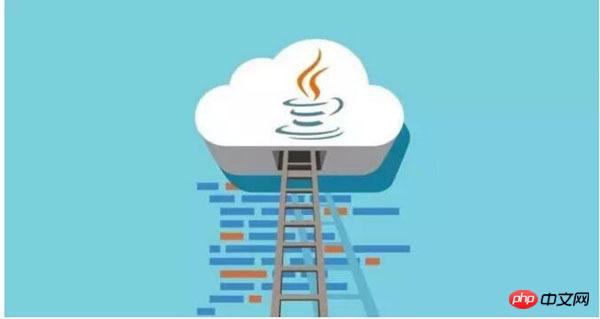8 interview syllabus for senior Java development engineers
There are many Java learning books on the market. Most of the books explain the most basic parts of Java. Some slightly informal books may have some wrong content, and there are also all kinds of strange ones on the Internet. Many Java interview questions also focus on the basics of Java. In fact, if you apply for a senior Java development engineer, the inventory of these basic knowledge is far from enough. In addition, you must understand algorithms, data structures, operating systems, etc. Because the content involves a lot, I will not explain specific technologies. Instead, I have compiled interview questions for recruiting senior Java development engineers from companies. I hope it will be helpful to everyone.

2. Class loading Master the loading stages of classes: loading, linking (verification, preparation, parsing) initialization, use, and unloading. Master the classification of class loaders and their application class loaders and custom loaders. 3. J2EE Master the built-in objects, actions and related characteristics and working principles of Servlet Master the IOC and AOP implementation principles of the Spring framework (reflection and dynamic proxy) Master the working principles of at least one MVC framework (Spring MVC) and use it skillfully. 4. Data structures and algorithmsMaster the characteristics of linear tables and trees and use them skillfullyMaster common sorting and search algorithms: insertion sort (Hill sort), Selection sort (heap sort), exchange sort (bubble sort) sequential search, binary search, hash search Proficiency in using sorting and search ideas to solve programming problems 5. Database
Master the writing of SQL statementsMaster the optimization of the database (SQL level and table design level)Master at least one database productBe familiar with high concurrency and big data Database development under the circumstances. 6. Web Technology Master the working principle of AJAX. Familiar with at least one JS framework (such as JQuery) 7. Linux Proficient in using common Linux commands Familiar with the basic concepts and features of the Linux operating system 8. Regular expressionsMaster common regular expressions

Hot AI Tools

Undresser.AI Undress
AI-powered app for creating realistic nude photos

AI Clothes Remover
Online AI tool for removing clothes from photos.

Undress AI Tool
Undress images for free

Clothoff.io
AI clothes remover

AI Hentai Generator
Generate AI Hentai for free.

Hot Article

Hot Tools

Notepad++7.3.1
Easy-to-use and free code editor

SublimeText3 Chinese version
Chinese version, very easy to use

Zend Studio 13.0.1
Powerful PHP integrated development environment

Dreamweaver CS6
Visual web development tools

SublimeText3 Mac version
God-level code editing software (SublimeText3)

Hot Topics
 1371
1371
 52
52
 Square Root in Java
Aug 30, 2024 pm 04:26 PM
Square Root in Java
Aug 30, 2024 pm 04:26 PM
Guide to Square Root in Java. Here we discuss how Square Root works in Java with example and its code implementation respectively.
 Perfect Number in Java
Aug 30, 2024 pm 04:28 PM
Perfect Number in Java
Aug 30, 2024 pm 04:28 PM
Guide to Perfect Number in Java. Here we discuss the Definition, How to check Perfect number in Java?, examples with code implementation.
 Armstrong Number in Java
Aug 30, 2024 pm 04:26 PM
Armstrong Number in Java
Aug 30, 2024 pm 04:26 PM
Guide to the Armstrong Number in Java. Here we discuss an introduction to Armstrong's number in java along with some of the code.
 Random Number Generator in Java
Aug 30, 2024 pm 04:27 PM
Random Number Generator in Java
Aug 30, 2024 pm 04:27 PM
Guide to Random Number Generator in Java. Here we discuss Functions in Java with examples and two different Generators with ther examples.
 Weka in Java
Aug 30, 2024 pm 04:28 PM
Weka in Java
Aug 30, 2024 pm 04:28 PM
Guide to Weka in Java. Here we discuss the Introduction, how to use weka java, the type of platform, and advantages with examples.
 Smith Number in Java
Aug 30, 2024 pm 04:28 PM
Smith Number in Java
Aug 30, 2024 pm 04:28 PM
Guide to Smith Number in Java. Here we discuss the Definition, How to check smith number in Java? example with code implementation.
 Java Spring Interview Questions
Aug 30, 2024 pm 04:29 PM
Java Spring Interview Questions
Aug 30, 2024 pm 04:29 PM
In this article, we have kept the most asked Java Spring Interview Questions with their detailed answers. So that you can crack the interview.
 Break or return from Java 8 stream forEach?
Feb 07, 2025 pm 12:09 PM
Break or return from Java 8 stream forEach?
Feb 07, 2025 pm 12:09 PM
Java 8 introduces the Stream API, providing a powerful and expressive way to process data collections. However, a common question when using Stream is: How to break or return from a forEach operation? Traditional loops allow for early interruption or return, but Stream's forEach method does not directly support this method. This article will explain the reasons and explore alternative methods for implementing premature termination in Stream processing systems. Further reading: Java Stream API improvements Understand Stream forEach The forEach method is a terminal operation that performs one operation on each element in the Stream. Its design intention is



